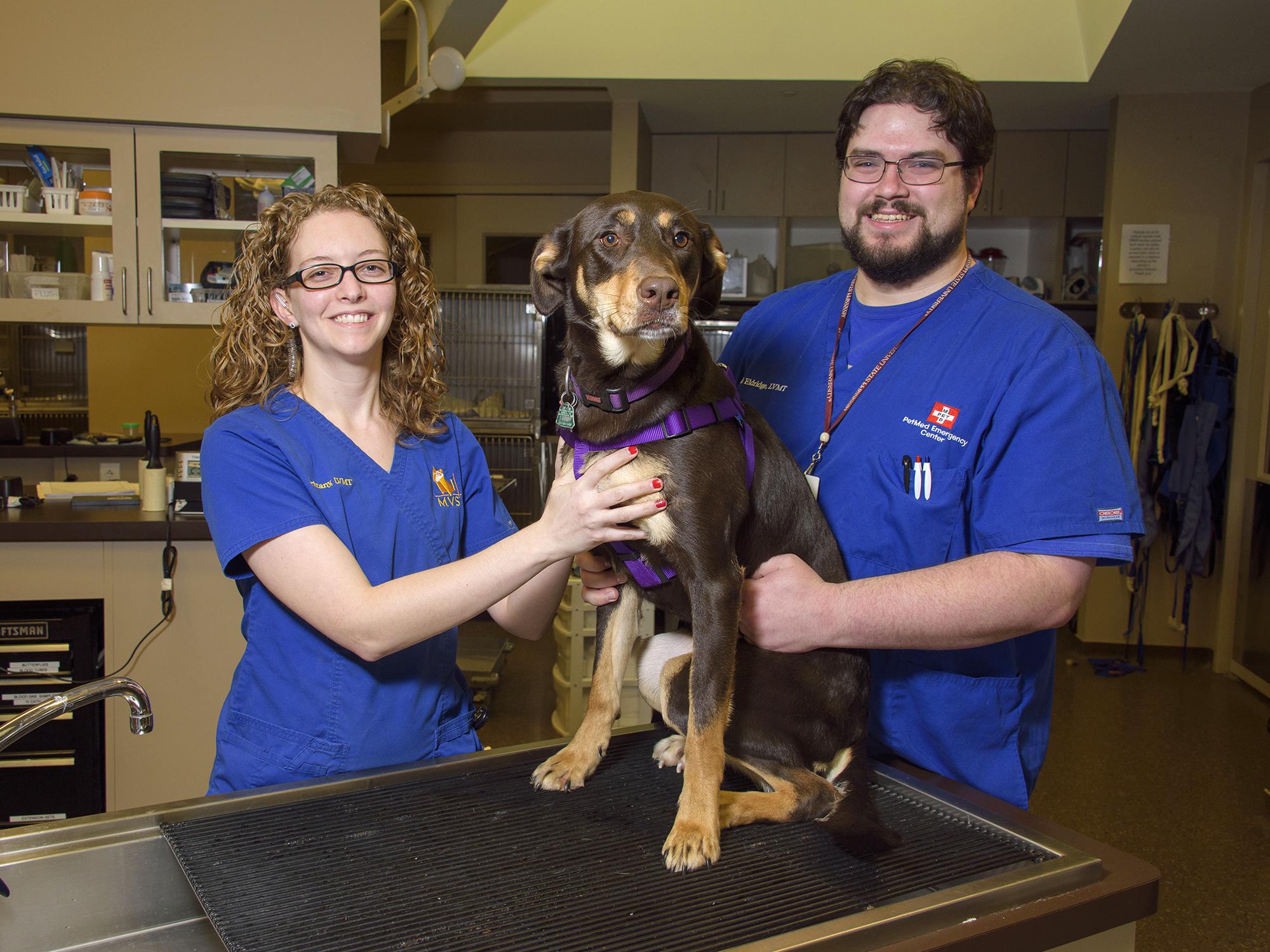Information Possibly Outdated
The information presented on this page was originally released on June 6, 2016. It may not be outdated, but please search our site for more current information. If you plan to quote or reference this information in a publication, please check with the Extension specialist or author before proceeding.
MSU grads love careers as veterinary technicians
STARKVILLE, Miss. -- When Brittany Storey of Terry, Mississippi, was searching for a major, she felt a little like Goldilocks -- she couldn’t find the career path that felt “just right.”
Although she loved animals and wanted a career in biology, she did not see herself as a veterinarian. She spoke with different department heads, but she could not picture herself in a career in agriculture or human medicine, either.
Finally, she discovered a new program at the Mississippi State University College of Veterinary Medicine for veterinary medical technicians, and after spending some time shadowing Lisa Pritchard and other VMTs at MSU-CVM, decided the program was the perfect fit.
Storey graduated in 2013 and currently works at Memphis Veterinary Specialists as a licensed veterinary medical technician.
“I am very pleased with my career decision, because I am able to be an advocate for the patients,” Storey said. “I am able to be a doctor’s second set of eyes when she has to go figure out the best plan of treatment, or be her second set of hands to help a patient become more comfortable and pain-free. I can also be there to comfort the patient’s owner when the doctor is busy with another patient.”
Storey said her job in the clinic is comparable to a nurse’s role in a human medical setting.
“I can play many roles, such as radiology technician, anesthetist, lab technician, phlebotomist, surgical assistant, mortician, or just a shoulder to cry on,” she said. “Now that I am working in all these different capacities, I’m able to call on what I learned as a student at MSU and build on that.”
Storey said she chose MSU because she wanted a high-quality education in a scientific field without having to leave her home state. But more than an education, she was welcomed into a warm, hospitable atmosphere with people who truly wanted her to succeed. In addition to technical skills and knowledge, she gained confidence and inspiration.
Storey’s next goal is to complete her veterinary technician specialty in small animal internal medicine.
MSU-CVM is the third college of veterinary medicine in the U.S. to offer a 4-year bachelor of science degree in veterinary medical technology. Nationwide, students have just 20 programs to apply to for this degree.
Dr. Ron McLaughlin, associate dean for administration at MSU-CVM, said the college introduced the VMT program to help fill a need for more trained animal “nurses” in Mississippi and across the country.
“This bachelor’s degree program provides our graduates with the knowledge and skills necessary to excel in a wide variety of animal-related fields,” McLaughlin said. “We are very proud of the tremendous impact they’ve had in numerous veterinary hospitals, shelters, and research labs throughout the region. The program’s success is the result of a lot of hard work by the faculty and the students, and is certainly a point of pride at the college.”
David Eldridge of Memphis, Tennessee, was in the first graduating class of VMTs in 2012. He first decided MSU was the place for him when he visited campus in 2007.
While Eldridge originally aspired to be a veterinarian, once he discovered the VMT program, he never looked back.
“I loved seeing the other side of veterinary medicine, from a nurse’s point of view,” Eldridge said. “The teachers showed me there is no limit to what we can do, and the vet school taught us how valuable we can be. I knew then I wanted to do this for the rest of my career.”
Eldridge worked in the CVM radiology and laboratory animal departments, but he opted to pursue emergency medicine after graduation. He currently works at PetMed Emergency Center in Memphis and is studying to become specialized with the Academy of Veterinary Emergency and Critical Care Technicians.
“I am certified in animal CPR, and I’m learning new skills and knowledge for critical patients,” he said. “Working in the ER can be long hours, stressful, and sometimes draining, but it is important and rewarding.”
For more information about the VMT program, go to http://www.cvm.msstate.edu.
Contact: Karen Templeton, 662-325-1100.




